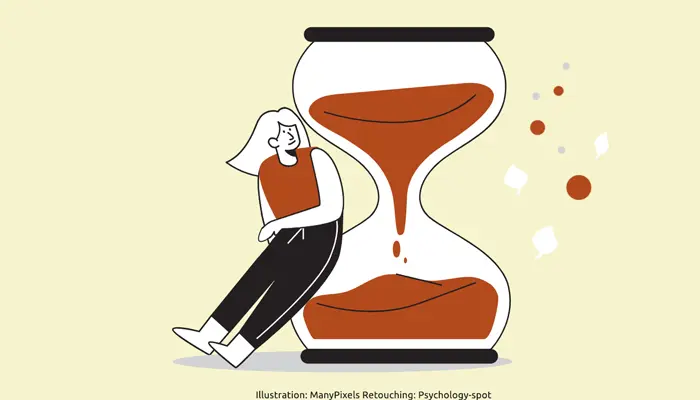
“Patience is the strength of the weak, impatience is the weakness of the strong” said Immanuel Kant. However, many centuries ago, many philosophers had praised the virtues and benefits of patience, one of the least valued qualities in modern society, where everything is frenetic and changes are fast, and we don’t have enough time to consolidate the new skills that we have acquired.
Liquid life does not contemplate patience
The sociologist Zygmunt Bauman referred to modern times defining them with the expression “liquid life”. This life is characterized by not maintaining a precise direction because, being liquid, does not maintain the same shape for a long time. As principle, the possibility of changing and adapting to the environment is not a bad thing.
But the problem is that such a high level of “liquidity” ends up producing precariousness and uncertainty. We are obsessed with not losing the upgrade train, even if that adaptation is superficial and indeterminate, the goal is not to be marginalized for becoming “obsolete”. In the meantime, it occurs the loss of clear and solid referents, which is why you end up advancing in the dark.
In this vertiginous movement routines change before the previous ones have been able to consolidate, what previously had value now no longer has it and skills become disabilities in the blink of an eye. This vision of the world makes sure that “successful” people are also the most agile, light and unstable, those who consider innovation to be good news, precariousness a value and instability source of motivation.
There is no room for patience in this liquid society. “I want” must immediately turn into “I have”. The profound need for immediacy often prevents us from tolerating frustration and postponing certain rewards to obtain greater benefits in the future. So, we voluntarily surrender to stress, anxiety and frustration.
This dynamic destroys us because, after all, as much as we want it, we cannot speed up the pace at which things happen in our lives, that natural rhythm has its own times and we cannot force it excessively. Going faster means often feeling frustrated and suffering, losing precious psychological energy while we forget to enjoy the things we already have. So we turn into guinea pigs that run inside a labyrinth, stunned by their own speed.
The good always comes late, because what comes easily, it also goes easily
The immediacy makes us make hasty decisions that we can regret later because, focused only on the reward, we forget to calculate all the factors and predict the consequences.
In Eastern philosophies such as Buddhism and Taoism, patience is one of the most appreciated virtues. In fact, one of the most powerful concepts of Taoism is “wu-wei”, which literally means inaction or no action. But it does not mean keeping your arms crossed, but letting life flow and preparing to take advantage of opportunities when they knock on your door.
Let’s think, for example, to a flower that grows spontaneously. If that flower develops awareness similar to ours, it is likely that it would start to worry about the flowering process. It may be wondering what color its petals will look like, how it could speed up the process using fertilizer, how much it costs and if it can buy it. It will also wonder if it will be more beautiful and bigger than the flower that grows next. So, what is a natural process could become a real trauma.
In many cases, all we have to do is let life flow. It means getting rid of the obsession with immediacy and expanding our consciousness, moving from presentism to a broader and more open perspective, that allows us to see the picture as a whole, understanding the existing connections. We must be fully aware that, between “planting and harvesting” there is a period that must be dedicated to “watering and waiting”.
Remember that patience is not the ability to wait, but to maintain a good attitude while you wait. This video by Michale Warren and Katelyn Hagen entitled “The Counting Sheep” shows us precisely the importance of waiting patiently, not making definitive decisions conditioned by temporary emotions.
It is a perfect video to convey the importance of patience to children and to prevent them from building a liquid life when they are adults. It is likely that the authors were inspired by the book “The flock”, by Margarita del Mazo, which offers us a great lesson of diversity, individual freedom and respect for the others.
In this case, the story is about a different sheep, who simply did not want to jump the fence because she was tired of always doing the same thing and follow a script that did not motivate her and in which she had no decision-making power. Although it is a book aimed at children, it is likely that more than one adult will feel identified with the protagonist, because it stimulates some very interesting reflections on modern life.



